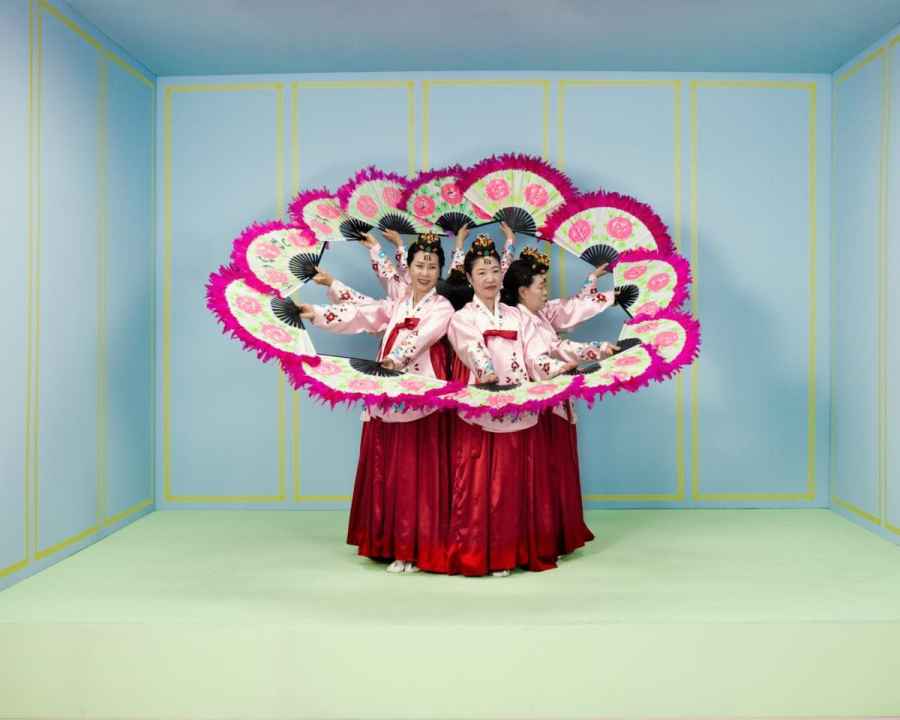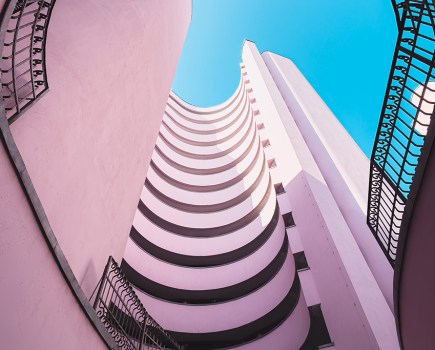Despot, tyrant, oppressor, Kim fatty the third, nuke kid on the block – there are many derogatory terms to describe North Korea’s supreme leader, Kim Jong-un. The secretive nation with the world’s fourth-largest standing military and access to chemical weapons and a nuclear arsenal, is a constant source of mockery. ‘The morbid fascination with North Korea makes me feel uncomfortable. I wanted this story to be about the future and the beautiful lives the North Korean community has made,’ explains award-winning artist, and Royal College of Art graduate, Catherine Hyland.

Despite her interest in North Korea, Hyland has never visited the country
The community she is referring to is in New Malden, south-west London. The streets are very different from the skyline of Pyongyang. Nestled among the houses is increasing evidence of Korean influence: bakeries, estate agents and acupuncture centres. There are approximately 20,000 Koreans living in New Malden, a third of the Surrey suburb. Over 600 are North Koreans – the largest community of defectors outside the Korean Peninsula, in 2007 there were just 20.
The Traces Left Behind is the first LUMIX Stories for Change project – a partnership which celebrates the power of photography to drive positive change. Photographers and filmmakers are provided with a creative grant and Panasonic Lumix S Series kit to create a new body of work exploring important contemporary issues.

The project aims to show resilience, but also joy
Hyland’s project comprises a series of stills and a short film that takes the viewer inside The Korean Senior Citizen Society – scenes of eating, laughing, piano playing, making tea, medical treatments, drumming and playing cards show an inclusive place of support and togetherness where memories of home and circumstances of the present can be shared. These intimate moments are interspersed in the film between traditional acts performed by the society’s dance group and choir.
The defectors, dressed impeccably in traditional costume, dance elegantly with splayed fans and sing from cerise-coloured song books. There is an overriding sense of joy but close-ups reveal eyes that have seen never-to-be-forgotten horrors: ‘When you woke up, there would have been more deaths overnight and bodies would be rolling around outside,’ recalls a performer referring to Arduous March, a period of mass starvation and economic crisis from 1994-1998.
The film shows a resilience from those that have made New Malden their home. It captures the protagonists desire for life – how they have reshaped and reclaimed theirs.

Hyland’s project documents The Korean Senior Citizen Society
Like-minded
Hyland’s interest in North Korea was sparked over a decade before, when reading Nothing to Envy: Real Lives in North Korea by Barbara Demick. Intrigue escalated when she attended talks by defectors at the Frontline Club in west London, a gathering place for journalists, photographers and other like-minded people interested in international affairs and independent journalism. She then started going to Korean Pop (K-Pop) competitions and attending church services to get to know the community. The project was built slowly so she could educate herself about North Korea and learn how it could be mutually beneficial and not just endorse the mainstream news. Only those who wanted to take part did and they were often instrumental in suggesting ideas.

The pastel colours of the set is inspired by Dutch artist Marleen Sleewits
There is more to come from Hyland: ‘It was brave of Lumix to fund the work. The first stage of the project was to collaborate with the community on this bit of art. The second is to raise money and give back. The Korean Senior Citizen Centre needs a cooker and dishwasher.’ Artists don’t always have a deeply personal link to where and what they choose to report on, sometimes a great story and desire to help is enough. Was Hyland tempted to visit North Korea? ‘I didn’t want to go – I’d just be doing their propaganda.’
Catherine Hyland is an artist based in London. Her photography centres on people and their connection to the land they inhabit. She has been exhibited several times and has won a number of awards. See more at catherinehyland.co.uk.








